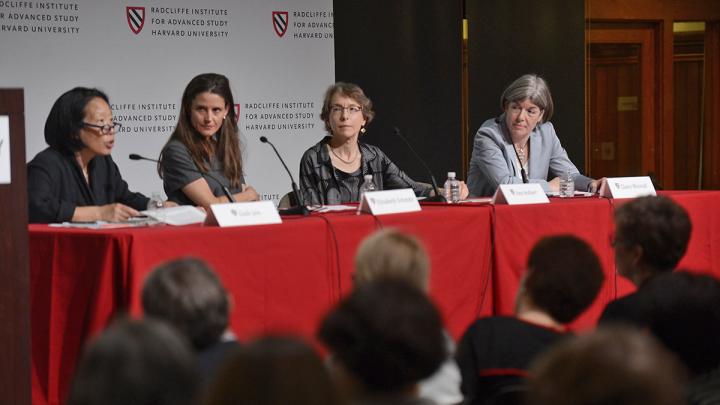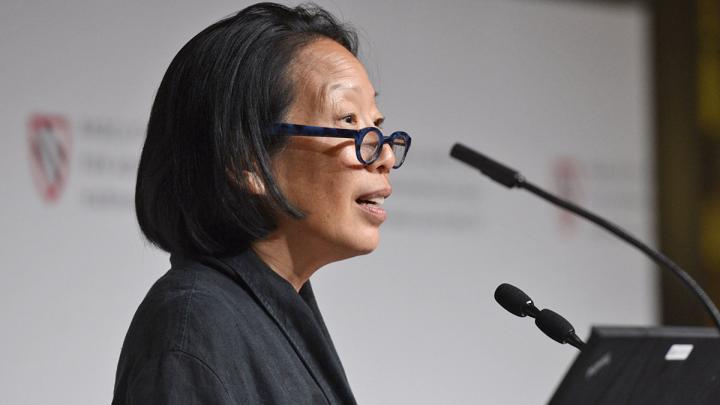“Silly novels by Lady Novelists are a genus with many species, determined by the particular quality of silliness that predominates in them—the frothy, the prosy, the pious, or the pedantic.” So began a scathing 1856 essay by English novelist Mary Ann Evans, who chose her pen name, George Eliot, precisely to avoid association with the more frivolous writers of her sex.
“Gender issues have plagued the arts from time immemorial,” said writer Gish Jen ’77, BI ’87, RI ’02, during the panel “Gender and the Business of Fiction,” one of three held on Radcliffe Day, May 30, to celebrate the fifteenth anniversary of the Radcliffe Institute for Advanced Study. Nathaniel Hawthorne complained of “a damned mob of scribbling women,” and Jane Austen declared, “I could not sit seriously down to write a serious Romance under any other motive than to save my life.”
The association of “silly novels” and “Lady Novelists” seems to have stuck. “The question that [comes up] again and again,” said panelist Elisabeth Schmitz ’86, vice president and editorial director of Grove Atlantic, “is whether or not a large sample of women writers are, by default of their gender, being passed over as serious writers and their work perceived as a separate genre: ‘women’s fiction.’”
Marketing, panelists suggested, was partly to blame for trivializing women’s work. “Many women,” asserted Jen, “have been strong-armed into accepting titles and covers that paint them with a sentimentality that is not theirs.” One cover for the fiftieth-anniversary edition of Sylvia Plath’s semiautobiographical novel The Bell Jar, about a struggle with mental illness, featured an illustration of a young woman looking into a make-up mirror.
Book covers aside, recent metrics also evince strong gender imbalances among what is considered serious literary fiction. Only eight female authors were represented on the Modern Library publishing company’s list of the top 100 novels of the twentieth century. According to the 2013 VIDA count, an annual, volunteer-compiled tally of female representation in the literary arts, men made up more than 80 percent of the reviewers and authors being reviewed in the New York Review of Books, The Atlantic, and The New Republic. “I think the cultural authority of women in general will be greater if women are seen as arbiters in the nonfiction realm,” said panelist Ann Hulbert ’77, books and culture editor at The Atlantic.
Panelist Claire Messud, RI ’05, pointed to a broader problem involving the notion of genius. “The role of a great writer, according to the European ideal…requires distance, authority, and a presumption of genius,” the novelist argued. “Genius should not, therefore, show up at the school gates, smiling brightly and making plans for the potluck. It cannot be sweet. It does not consider its attractiveness. It does not accommodate, it does not seek to relate. This sort of ego is impressive, even appealing—it is also not common in women.”
Instead, Messud urged readers to define their own canon. “When the fashion magazines try to sell you bellbottoms, you don’t have to buy them. When the critics of record try to sell you novels about baseball, you don’t have to buy them,” she said. “You can redefine genius. You can see it at the school gate, if you choose. Each of us has the power to change the balance.”









